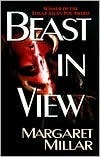Take a photo of a barcode or cover
Brilliant!! Except for the 5 min the detective seemed randomly in love with Helen? Why??? And it just came and went for no reason. Otherwise great book!!!!!
dark
tense
fast-paced
Plot or Character Driven:
A mix
Strong character development:
N/A
Loveable characters:
No
Diverse cast of characters:
No
Flaws of characters a main focus:
Yes
Graphic: Schizophrenia/Psychosis
challenging
dark
mysterious
reflective
fast-paced
Plot or Character Driven:
Character
Strong character development:
No
Loveable characters:
No
Diverse cast of characters:
No
Flaws of characters a main focus:
Yes
mysterious
medium-paced
Plot or Character Driven:
A mix
Strong character development:
No
Loveable characters:
No
Diverse cast of characters:
No
Flaws of characters a main focus:
Yes
dark
mysterious
fast-paced
Plot or Character Driven:
Plot
Strong character development:
No
Loveable characters:
No
Diverse cast of characters:
Complicated
Flaws of characters a main focus:
No
4.5 - Millar is a minimalist, literary master of prose, in addition to being a formative genre writer. This short book surprises with inventive, lyrical gems that make crime writing shockingly gorgeous.
dark
mysterious
tense
fast-paced
Strong character development:
No
Loveable characters:
No
Diverse cast of characters:
No
dark
slow-paced
Plot or Character Driven:
A mix
Strong character development:
No
Loveable characters:
No
Diverse cast of characters:
Yes
Flaws of characters a main focus:
Yes
That was a lot of fun! I would suggest reading this one straight through in one sitting.






